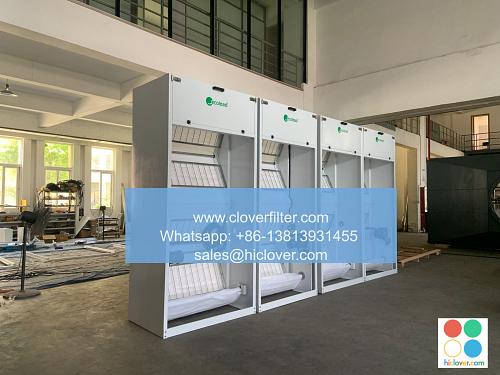Biosafety Lab Air Filtration: The Benefits of Upgrading to Automatic Roll Air Filters

Biosafety labs require precise control over their environment to prevent contamination and ensure the safety of personnel and research. One critical component of biosafety lab design is air filtration, which plays a crucial role in maintaining a sterile and safe atmosphere. Traditional air filtration systems often rely on manual replacement of filters, which can be time-consuming and may lead to human error. However, with the advent of automatic roll air filters, biosafety labs can upgrade their air filtration systems to achieve enhanced contamination control, energy efficiency, and cost savings.
Benefits of Automatic Roll Air Filters
Automatic roll air filters offer several benefits over traditional manual filter replacement systems. These benefits include:
* Improved air quality: Automatic roll air filters can provide continuous HEPA filtration, ensuring that the air in the biosafety lab remains free from contaminants and particles.
* Reduced maintenance: With automatic roll air filters, the need for manual filter replacement is eliminated, reducing the risk of human error and minimizing maintenance downtime.
* Enhanced safety: Automatic roll air filters can detect and respond to changes in air quality, providing real-time monitoring and alerts to ensure a safe working environment.
* Increased energy efficiency: Automatic roll air filters can optimize airflow and reduce energy consumption, resulting in cost savings and a reduced carbon footprint.
Application Areas
Automatic roll air filters have various applications in biosafety labs, including:
* BSL-3 and BSL-4 labs: These labs require the highest level of biocontainment and air filtration to prevent the spread of highly infectious agents.
* Pharmaceutical research and development: Automatic roll air filters can provide cleanroom-grade air quality for pharmaceutical research and development applications.
* Biotechnology and molecular biology labs: These labs require precise control over their environment to prevent contamination and ensure the accuracy of experimental results.
* Hospital and healthcare facilities: Automatic roll air filters can provide infection control and indoor air quality solutions for hospital and healthcare facilities.
Key Features to Consider
When upgrading to automatic roll air filters, biosafety labs should consider the following key features:
* Filter media: Look for filters with high-quality HEPA or ULPA media to ensure effective particulate removal.
* Automatic filter replacement: Ensure that the system can automatically replace filters without requiring manual intervention.
* Real-time monitoring: Opt for systems with real-time monitoring and alerts to ensure prompt response to changes in air quality.
* Integration with existing systems: Consider systems that can integrate with existing building management systems (BMS) and HVAC systems.
Conclusion
Upgrading to automatic roll air filters can significantly enhance the air filtration and contamination control capabilities of biosafety labs. With benefits including improved air quality, reduced maintenance, and increased energy efficiency, automatic roll air filters are an attractive solution for labs seeking to improve their safety and efficiency. By considering key features and application areas, biosafety labs can make informed decisions when selecting an automatic roll air filter system to meet their specific needs.

